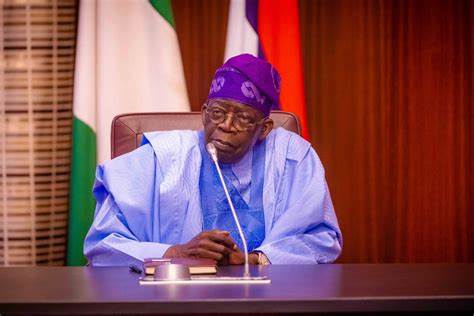The African Democratic Congress (ADC) has harshly criticized the Tinubu administration following Nigeria’s exclusion from high-level commercial talks between the United States and select African nations at the White House, describing it as evidence of the country’s diminished international standing.
In a statement released Tuesday by Interim National Publicity Secretary and Opposition Coalition Spokesperson Bolaji Abdullahi, the ADC expressed alarm over the US government’s decision to host Presidents of Gabon, Guinea-Bissau, Liberia, Mauritania, and Senegal for commercial discussions on Wednesday without extending an invitation to Nigeria.
The opposition party characterized Nigeria’s exclusion as “a damning international indictment of the Tinubu administration” and attributed it to sustained economic mismanagement, weak diplomacy, and the government’s inability to project Nigeria’s strategic importance globally.
“For years, African thought leaders have argued that it was about time that the Western World started to engage with African countries as trade partners rather than as hapless recipients of aid. Finally, an American President has emerged who is cutting aid and promoting trade. But Nigeria is not invited to the table,” the ADC statement read.
According to the party, the three-day meeting is designed to explore commercial opportunities benefiting both American companies and African partners, with the US reportedly inviting only countries that have demonstrated “the ability, and willingness, to help itself.”
The ADC interpreted this exclusion as a significant diplomatic setback, arguing that despite Nigeria being Africa’s largest economy with the continent’s largest consumer market and most influential diaspora, the United States chose to bypass the country in favor of nations whose combined GDP represents only a fraction of Nigeria’s economic output.
“What this means in plain language is that under President Tinubu, Nigeria is no longer taken seriously,” Abdullahi stated. “With this snob, what the Americans are telling us is that size means nothing without leadership and a demonstrable commitment to efficiency, to transparency and to accountability.”
The party emphasized that such a meeting would have been unthinkable without Nigeria’s participation just a few years ago, suggesting that the current administration has significantly damaged the country’s international reputation and standing.
Adding to the diplomatic concerns, the ADC noted that Nigeria now faces threats of a 10% tariff from President Trump due to its association with BRICS, which began in January 2025. While the party stated it is not opposed to BRICS membership, it criticized Nigeria for “punching below its weight by playing in the small league.”
The opposition party argued that if Nigeria had maintained its traditional leadership role among African nations, it would have been invited to the Washington meeting and could have used the opportunity to advance the African Union’s position on global trade, particularly given that Nigerian-born Ngozi Okonjo-Iweala heads the World Trade Organization.
The ADC also criticized the government’s regional diplomatic performance, claiming that under the APC administration, Nigeria is no longer respected even as a regional leader within the Economic Community of West African States (ECOWAS), which has allegedly shrunk in size and significance under President Tinubu’s leadership.
The statement took particular aim at President Tinubu’s recent visit to St. Lucia, describing it as emblematic of Nigeria’s reduced status. “Under the present administration, Nigeria has become an afterthought, reduced to playing with back-water countries like St. Lucia, a country with less than 1% of its GDP and a population less than that of a rural local government in Nigeria,” the ADC stated.
The party accused the APC government of not only stalling economic progress but also stripping Nigeria of opportunities to participate in crucial international forums where significant decisions and investments that could create jobs and boost economic growth are being made.
“This is what happens when the government at the centre prioritises politics over performance, and propaganda over progress,” Abdullahi concluded. “As a nation that has led before, and can lead again, we must reject the future the APC seeks to impose on us—one where we are ignored, sidelined, and treated as insignificant.”
The ADC’s criticism reflects broader concerns about Nigeria’s diplomatic positioning and international relations under the current administration, as opposition parties continue to challenge the government’s foreign policy approach and its impact on the country’s global standing.

















